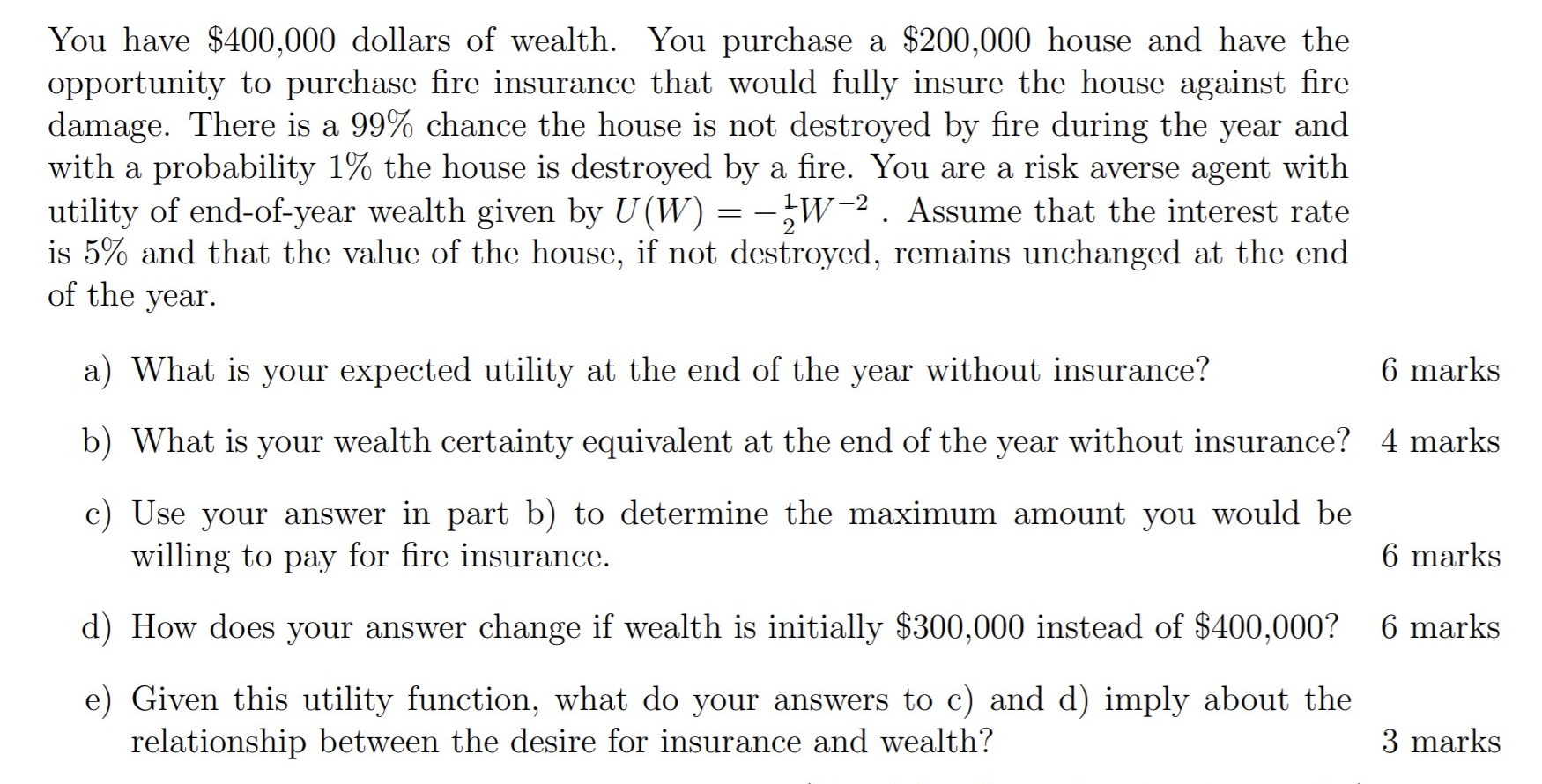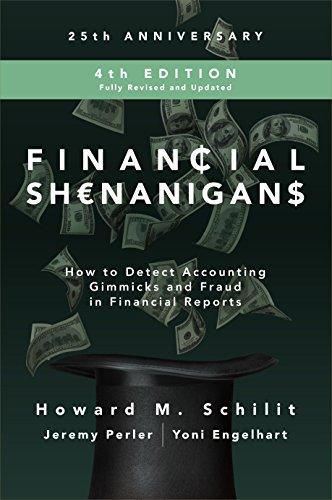
You have $400,000 dollars of wealth. You purchase a $200,000 house and have the opportunity to purchase fire insurance that would fully insure the house against fire damage. There is a 99% chance the house is not destroyed by fire during the year and with a probability 1% the house is destroyed by a fire. You are a risk averse agent with utility of end-of-year wealth given by U(W) = --W-2. Assume that the interest rate is 5% and that the value of the house, if not destroyed, remains unchanged at the end of the year. a) What is your expected utility at the end of the year without insurance? 6 marks b) What is your wealth certainty equivalent at the end of the year without insurance? 4 marks c) Use your answer in part b) to determine the maximum amount you would be willing to pay for fire insurance. 6 marks d) How does your answer change if wealth is initially $300,000 instead of $400,000? 6 marks e) Given this utility function, what do your answers to c) and d) imply about the relationship between the desire for insurance and wealth? 3 marks You have $400,000 dollars of wealth. You purchase a $200,000 house and have the opportunity to purchase fire insurance that would fully insure the house against fire damage. There is a 99% chance the house is not destroyed by fire during the year and with a probability 1% the house is destroyed by a fire. You are a risk averse agent with utility of end-of-year wealth given by U(W) = --W-2. Assume that the interest rate is 5% and that the value of the house, if not destroyed, remains unchanged at the end of the year. a) What is your expected utility at the end of the year without insurance? 6 marks b) What is your wealth certainty equivalent at the end of the year without insurance? 4 marks c) Use your answer in part b) to determine the maximum amount you would be willing to pay for fire insurance. 6 marks d) How does your answer change if wealth is initially $300,000 instead of $400,000? 6 marks e) Given this utility function, what do your answers to c) and d) imply about the relationship between the desire for insurance and wealth? 3 marks







